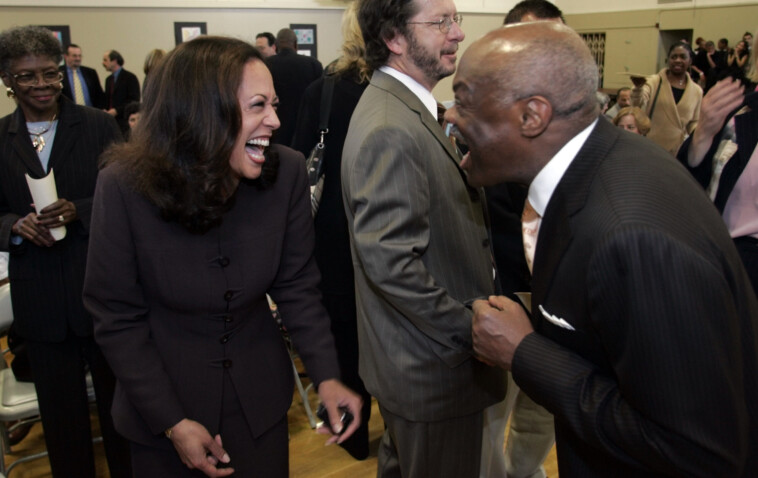Being in absentia, whether answering questions or taking responsibility for policy, is nothing new for Vice President Kamala Harris.
According to a new report, after Harris was appointed to serve on the California Medical Assistance Commission by her then-lover, California Assembly Speaker Willie Brown, she missed 23 of 111 CMAC meetings, the most absent commissioner on the board, The Daily Mail reports.
Harris “missed about 20% of the meetings each year, according to commission records,” The Washington Examiner originally reported in 2019, adding that Harris and Brown “started dating in the spring of 1994.” Harris, then 30, was appointed by Brown, then 60, in November 1994.
In 2003, talking to leftist writer Joan Walsh in an interview for San Francisco City Journal magazine, Harris boasted of her career, “I did the work. … I’ve worked my a** off for everything I have,” according to The Daily Mail, which added, “On other occasions the minutes reveal that Harris arrived after commissioners started the meetings and already conducted some of their business.”
“The relationship benefitted her mightily, leading to commission appointments that netted her more than $400,000 over five years, and a gift of a BMW,” SF Weekly noted of her romance with Brown.
“I may have influenced her career by appointing her to two state commissions when I was Assembly speaker,” Brown acknowledged in 2019.
“Brown, exercising his power even as his speakership seems near an end, named attorney Kamala Harris to the California Medical Assistance Commission, a job that pays $72,000 a year,” The Los Angeles Times reported in November 1994. “Harris, a former deputy district attorney in Alameda County, was described by several people at the Capitol as Brown’s girlfriend. In March, San Francisco Chronicle columnist Herb Caen called her ‘the Speaker’s new steady.’”
“Both boards are reserved for political payback or occasionally for personal rewards for personal service,” former State assemblyman Brett Granlund, who worked with the commission, stated. “The boards are considered plumb appointments as they require no work, no policy credentials, and are paid the equivalent of a full-time [state] senator for arriving at a one- to two-hour meeting each month. … Screwing the speaker has its rewards.”



